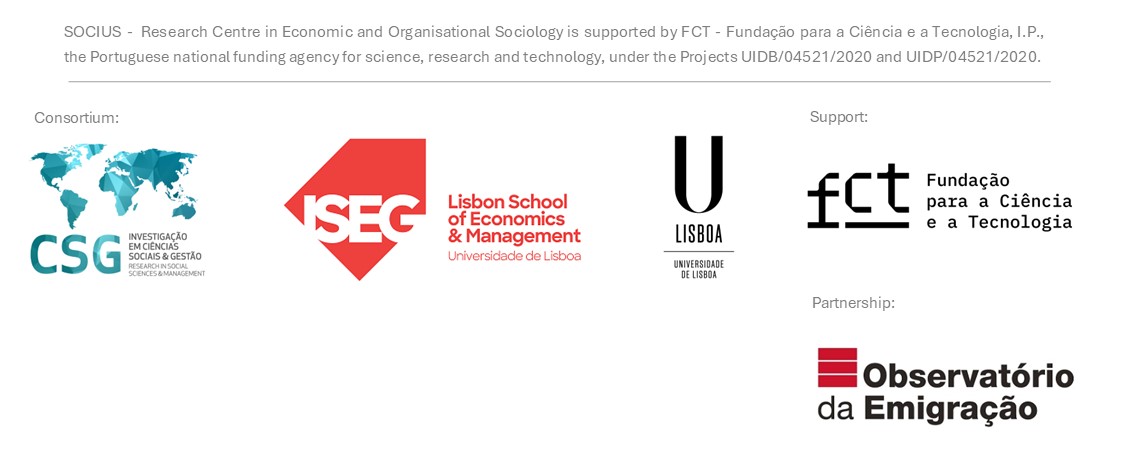Regresso ao futuro: a nova emigração e a relação com a sociedade portuguesa - REMIGR
Back to the future: new emigration and links to the Portuguese society
Team: João Peixoto (Main Researcher), Isabel Maria Brandão Tiago de Oliveira, Joana Azevedo, Jorge Malheiros, José Carlos Laranjo Marques, Paulo Miguel Madeira, Pedro Gois (Researchers) and 2 Research Studentships
Funding: FCT
Proponent Institution: SOCIUS/ISEG-UL
Participating institutions: CES, U.Coimbra, IGOT and ISCTE-IUL
Reference: PTDC /ATP-DEM/5152/2012
Schedule: June 1, 2013 - June 1, 2015
Keywords: Emigration, Mobility, Demography, Transnationalism
URL: www.remigr.pt
Summary
This project seeks to understand the size and characteristics of the new Portuguese emigration, especially considering the relationships that migrants maintain with their country of origin. In order to better operationalize the research, some retrictions will be adopted. On the empirical level, only flows occurred in the last decade (after the turn of the century) will be considered. In-depth observation will be made of two of the most exemplary flows, namely the mobility of young highly skilled (holders of a tertiary level degree) and low skilled manual workers, in the context of some countries of destination. An exhaustive survey of the main statistical data available will be made, complemented by an in-depth study of the two types of migrants in countries that stand out as important receivers in recent years. The chosen destinations were France and the UK, in the European Union, and Angola and Brazil, outside Europe, a combination needed to reflect contemporary migration dynamics.
One of the main issues to clarify in this project is the way forward after the current crossroads in which Portugal lies. Will the new emigration be strongly dependent on the economic situation, coming to an end after the economic recovery of the country, giving then place to a new predominance of immigration? Will it be a new kind of movement, creating new forms of transnationalism, in which double residences or double activities do not question the loyalty and economic interests in the country? Or will it be an indicator of loss of thickness of the Portuguese society, which may lose many of its elites and labour force, emphasizing its peripheral status in Europe?

